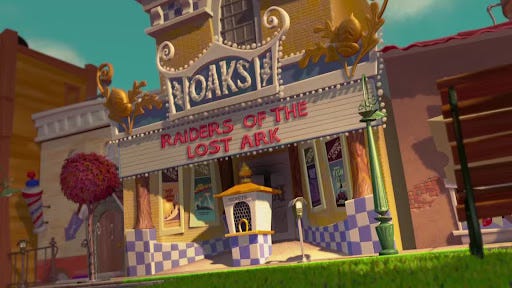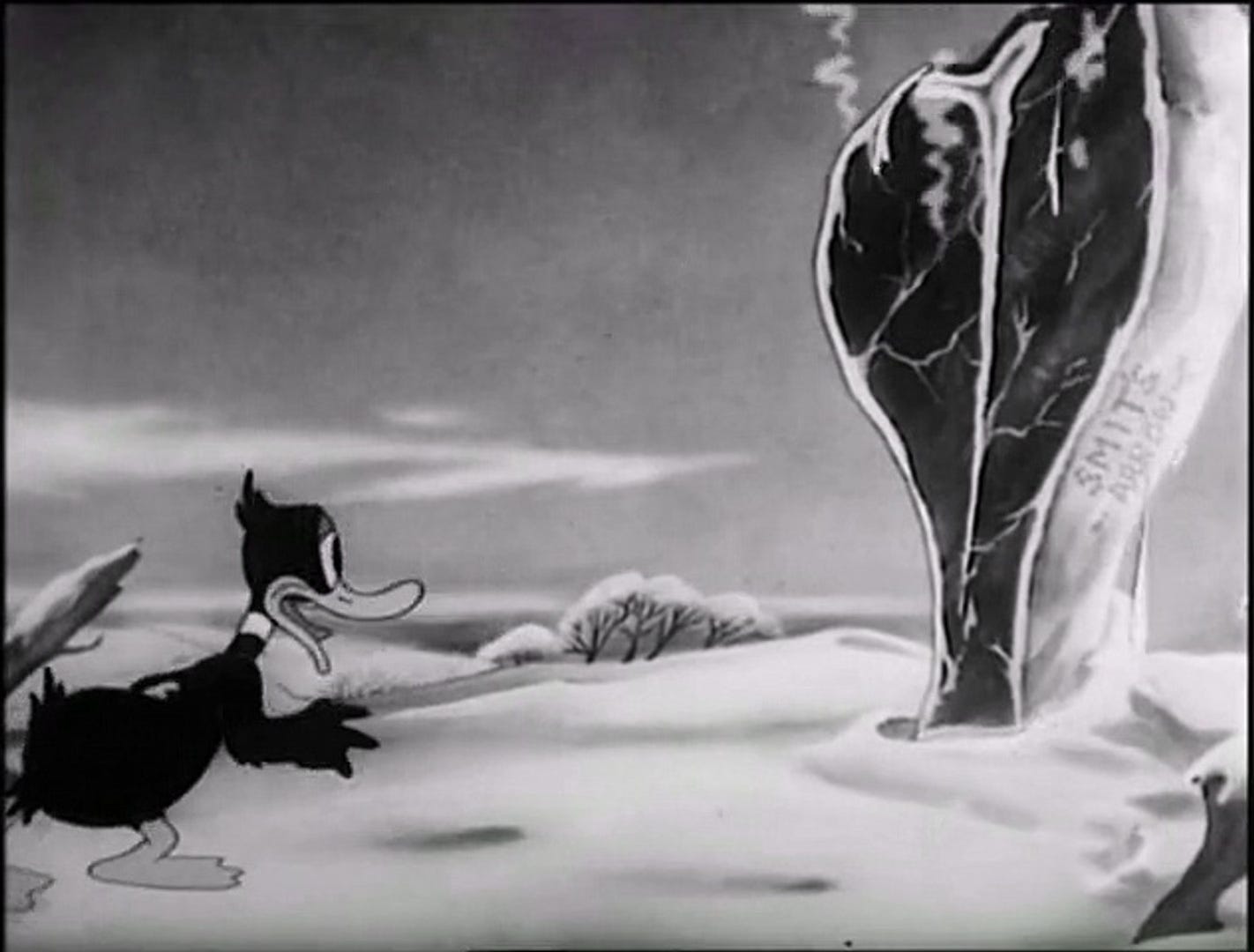A Life of Films Watched in Passing
We stop in San Sebastian before driving to Portugal. We remember the Frank O’Hara poem “Having a Coke With You,” which is more fun than going to San Sebastian. In the hotel room I turn on the TV and watch the last act of Spider-Man 2 (Sam Raimi, 2004) in Spanish. Films on TV are always framed by something else: either by the seeming possibility to always change the channel or by what came before and what will come next. In the case of Spider-Man 2, the next film was just its sequel, Spider-Man 3 (Sam Raimi, 2007). I remember watching both films in theaters. After returning from dinner and getting in bed, I did not turn the TV back on, expecting that the films were safely, but ephemerally, stored inside the channel’s ever-changing programming. I will later remember moments from Spider-Man 2 as if I was zapping through the channels of my own memory. Over the summer I collectively spent seven weeks without visiting a movie theater, living experiences untranslated and inexpressible in words if not left reduced to the cinematic tropes of romantic comedies and happy endings. Cut to credits.
We arrive in Portugal in the beginning of July. On a walk we pass a movie theater signaled only by its marquee. All the films are in there, playing even if no one is watching them. They don’t play one after the other, they play simultaneously and repeatedly. Different than my brief watching of Spider-Man 2, these films will not be followed by their sequel, and before they play for the first time to an audience member, someone just left the room having watched the exact same picture.
These films are not shown or seen in passing, their screen is fixed not only in space but in time. The programing I saw on the wall outside is the same for tomorrow, but it may change next week. The theater opens every day at the same time and only closes when the last film stops. The programing of the movie channel changes every day, they never show the same film consecutively. The TV screens what I like to call a Passing Film.
The Passing Film is a film screened in-between two different films and that is shown on a user-oriented screen like the television or the computer. The Passing Film is not a category, but rather a mode of watching. But it is a mode of watching which deeply affects the viewing experience. The Passing Film is surrounded by possibility rather than by the rigidity of a schedule. The Passing Film is passing because although the it may be fixed in time, the screen in which the Passing Film is watched is one we arrive to, can leave, and have some sort of control over. The Passing Film is dictated by a semblance of choice, from viewing, to length to starting point.
It was not until Alfred Hitchcock’s Psycho (1962) that screening times started being enforced. Given that the film’s advertising heavily focused on Janet Leigh’s character, Hitchcock was afraid spectator’s would be left confused if they arrived after the 20 minute mark, when the famous shower scene happens. The passing film abruptly starts in confusion, and confusion is something I often feel. I suddenly remember all the films I had forgotten.
I remember watching half of Wayne’s World (Penelope Spheres, 1992) for the first time on TV until I was kicked out of the room by my parents so they could watch the news. “What film was that?” echoing in my mind as I went upstairs. But the experience stayed with me. I also remember watching a film with Ben Stiller and Jack Black where the latter creates a spray which makes your dog’s poop vanish, it was on late night TV and it abruptly ends with me falling asleep—I first watched Noah Baumbach’s The Squid and the Whale (2005) in similar circumstances. I seem, in fact, to remember these films more than the ones I have watched on an isolated screen. It is as if any sense of confusion, of feeling lost, turns my brain into a media server.
And television, to Roland Barthes, is the opposite of the cinema: “[…] here darkness is erased, anonymity repressed; space is familiar, articulated (by furniture, known objects)[…]” (1986, 346) The act of remembering these films seen in passing becomes clearer when we think of why they may appear in thought so often. The familiar, to Barthes, is negative when compared to the darkness of the cinema, where nothing lies beyond its frame. But when there is nothing physical in the room to connect to the film, the way we think about it becomes much more abstract. A film seen in passing is one that creates an instant connection with that which physically surrounds it. “Memories of the outside world will never have the same tonality as those of home[…]” writes Gaston Bachelard in The Poetics of Space. “[…] by recalling these memories, we add to our store of dreams; we are never real historians, but always near poets, and our emotion is perhaps nothing but an expression of a poetry that was lost.” (2014, 28)
Remembering is poetry. Thinking, maybe. I remember all the advertisements for home-theater surround-sound systems and flat screen televisions I saw in magazines in the early 2000s when the DVD seemed to be bringing with it the end of the movie theater. The home-theater became intrinsically intertwined with family and memory, suddenly the portraits on the wall, the flowers on the table and scratch marks on the sofa were all added and removed from cinema with the touch of an eject button. Television kills the frame and then gives it back.
I remain outside the theaters and the cinematic will not leave me alone. In the absence of the rigidity of the theater, everything starts being framed. I think of visual depictions of hunger, like Daffy Duck seeing a pine tree as a T-bone steak in Daffy’s Southern Exposure (Norman McCabe, 1942). A lack of cinema can also cause withdrawal symptoms, so I imagine my summer as a much less disastrous version of Meet the Parents (Jay Roach, 2000).
What does living a life as a movie mean beyond the grandeur of disaster, narrative and astonishment? I see shots all around me, the everything happens. I am reminded of James Benning’s idea of light as narrative in his one-shot film Breathless (2024), which I watched earlier this year. But life as film is not about the technicalities of cinema, there is no diegesis to a movie-life or a movie-event. It is rather about the self-imposed narrative restriction, the feel for it. It is like a film because it feels written to astonish, shock or elude, but is that all film does? In the theater watching Breathless I am confined with the image (Barthes 1986, 347, 348). With nothing on screen but the static shot of a descending road my mind wanders. But the theater is seldom the darkness it imposes. Barthes speaks of being fascinated by cinema twice over, by the screen and its surroundings (1986, 348, 349). Mary-Anne Doane writes that:
“In narrative film, the notion of a ‘diegesis’, a virtual space that binds together the fragments that are shots, their diversity and their inevitable exclusion of space beyond the frame, is the point of a fragile but effective coherence that denies the spatial violence of editing and framing. Its provision of an imaginary, unified space – a world, in effect, with its own spatial and temporal logic that mimes the world – holds at bay the violence of abstraction.” (2009, 70)
But watching Benning’s road does not mime our experience of the world. I watched the film’s premiere at the festival Cinéma du Réel in Paris. The film was only shown once, its traces on the screen were erased by the next film in competition and I start to wonder if my idea of the Passing Film may be too rigid. I often forget many of the films I watch, but one shot is hard to forget.
Although the theater supposedly banishes everything that lies outside its borders, the further back I sit, the more I am invaded by what supposedly does not belong. The exit sign turns on and heads move in front of the screen—the cinema, as it turns out, can also be a place for the familiar. Then this is maybe why the philosopher Ludwig Wittgenstein chose to always sit on the front row, with nothing between his eyes and the screen, his mind turning “away from the thoughts of [his] lecture and his feelings of revulsion.” (Malcolm 2001, 26) The familiar invites memory, the darkness and isolation of the theater always brings thoughts and feelings (except if Wittgenstein deems the film “frightfully bad” (2003, 97)). And, frightfully, cinema is everywhere.
——————————————————————————————————————
It is August. In Twisters (Lee Isaac Chung, 2024) the screen of a movie theater is ripped off by a tornado during the film’s climax and I am on the edge of my seat. As the tornado dies down, the whole on the wall reveals an entirely new screen and a cinematic life as something attainable. Later I’ll remember that in Chicken Little (Mark Dindal, 2005) it is the world who rips the screen, as a rolling water tower demolishes the theater during Raiders of The Lost Ark’s (Steven Spielberg, 1981) most iconic scene. Now, I think of the myth of spectators fleeing their seats during the first screenings of the Lumière Brothers’ L’Arrivée d’un Train a La Ciotat (1895), fearing what was on screen was real and coming for them. The intrusion of real life in cinema is always seen as horrific by cinema itself. After watching Chicken Little in theaters with my grandma, she will pick up pizza for us and I’ll tell my dad over the phone about how funny that scene was, because I know he likes comedy and Indiana Jones. Much later I will feel my obsession with the movie theater is like Wittgenstein’s: “a shower bath!” (Malcolm 2001, 27).
CITATIONS:
Barthes, Roland. “Leaving The Movie Theatre” in The Rustle of Language. 1986.
Doane, Mary-Anne. “Scale and the Negotiation of ‘Real’ and ‘Unreal’ Space in the Cinema.” 2009.
Malcolm, Norman. Ludwig Wittgenstein: A Memoir, 2001.
Wittgenstein, Ludwig. Public and Private Occasions, edited by James C. Klagge and Alfred Normann, 2003.








